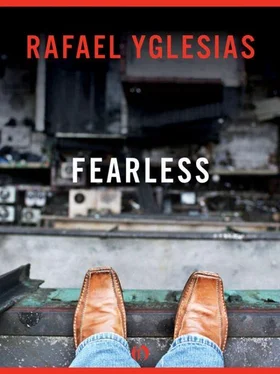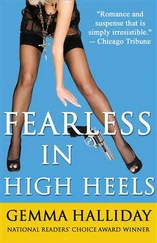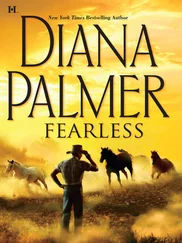Diane Hummel said softly, “Are you okay?”
Max looked at her. She seemed surprised by something on his face. He reached for his cheeks and discovered they were wet with tears. Max dabbed at them with the palm of his hand. Peter no longer appeared self-satisfied. He stared at Max with dispassionate curiosity.
“I’m sorry,” Max said. “Thank you for your offer. But I picked Brillstein because he’s second-rate, because it’s a big score for him. He’s been second-rate his whole life — just like me — and he thinks he needs just one break. I know he’s sleazy — I understand that he’s gotten several of the other survivors as clients by introducing himself as the Good Samaritan’s lawyer.”
“So you know about that?” Diane said in a musing tone.
“Max,” his mother said, arms and hands out. She and his sister Kate had arrived at the living room. “No kiss?”
“Sure, Mom,” Max said and rose dutifully. He talked to Diane while crossing the room to his mother. He touched his mother’s cheek with his lips briefly. The skin was soft and flabby and cold from the outdoors. Thirty years before, the widowed woman on the sidewalk had tight skin and gaunt cheeks. “I don’t really believe it’s going to take any skill to make a killing off this and I wanted that schlepper to have his big break.”
“What schlepper?” his sister said. “Are we talking about one of my old boyfriends?”
Max kissed Kate as well. Her skin wasn’t soft or loose. He finished his explanation to Diane: “Brillstein may blow the case but he’ll never be able to say he didn’t have a chance at the big time.”
“Is this man a friend of yours?” Peter said. He frowned resentfully as though he suspected Max of being a tease.
“No,” Max said gently. He continued softly, apologetically to Diane: “I guess it sounds crazy to you. But you’ve been at the top always, right? I mean I don’t know, but I get the feeling you were top in your class and that you’ve had your pick of jobs—”
“Diane’s a killer lawyer,” Peter said with a confusing mix of pride and acerbity.
“I haven’t had my pick,” Max said. “And yet I think I’m as smart as you. And I know in his heart of hearts Brillstein thinks he’s as good as any lawyer. Maybe we’re both kidding ourselves. But we deserve a shot, don’t we?”
“Max,” his mother said, a note of alarm and urgency in her tone.
“Yes, Mom?” he waited for her predictable reassurance, her usual tepid spoonful of soupy praise. What would it be? You’re not second-rate; in fifth grade Mrs. Horowitz said you were a visual genius. Or one of her negative palliatives: You do your best, Max, that’s all anyone can ask and your best is very good, better than most. Or perhaps the gift of her physical compensation: a kiss on the forehead, a mumbled “You’re a good man, Max,” her eyes shining into his, hands lingering on his waist a few Oedipal seconds too many.
“Max,” she said, again insistent.
“What?”
“No lawsuit talk on Thanksgiving. No crash talk. We’re supposed to give thanks today, aren’t we?”
“We’re Jewish, Ma,” Kate said. “We don’t give thanks, we just stop complaining.” Kate enjoyed her own joke, laughing hard. So did Harry. Their mother also; she laughed hard and reached for her daughter’s hand to give it an appreciative squeeze. Even Peter smiled — cautiously.
“That’s ridiculous,” Diane Hummel said angrily. The amusement was embarrassed into silence. She stood rigidly, her sleek black hair as tight and shiny on her scalp as if it were black enamel. Her lips had thinned to a pale red line. Her hands were clenched at her waist, lowered but ready for a fight. She raised her bony chin and declaimed in a voice fit for argument before the Supreme Court: “Thanksgiving belongs to all Americans.”
Later, when Max passed Diane the plate of stuffing, she said in a low voice, “They’re all ghouls anyway. Even the best.”
“Who?” Max asked.
“The aviation liability lawyers,” she mumbled. “Ghouls in Paul Stuart suits.”
Max didn’t have an appetite for the meal. He had lost it somewhere in the living room conversation. He knew that he would have to test himself soon.
Jonah and Sam didn’t want to linger at the table. Each time they tried to escape, Flora or Harry or Debby or Peter held them with either a bribe of dessert, a threat of failing some standard of maturity, or an unfavorable comparison to Byron. Byron was a paragon because, encouraged by his father’s interviewer’s manner, he ate all of Flora’s dishes and entertained the adults with statements of his architectural ideas and explanations of what Architron could do.
“Why don’t we have educational games like that for Jonah?” Debby asked Max.
“It’s not a game,” Max said. Jonah rolled his eyes and whispered something to Sam. Max continued, “It’s a thousand-dollar piece of software that Jeff and I didn’t think we could afford.”
“A thousand dollars!” Diane Hummel exclaimed to her husband. “Have you gone out of your mind? I thought it was twenty-five bucks.”
“A thousand dollars?” Sam said in a drawling whine. “For a thousand dollars you could buy every Nintendo game in the world!”
“In the universe!” Jonah said.
“Yeah!” said little Jake, rubbing his mucous mustache. “In both universes!”
“I’ll get you a tissue,” Debby said to Jake. “Or you could use your napkin.” Debby leaned over and offered Jake his pristine napkin.
Jake crossed his little arms, ducked his chin to his chest, and shook his head from side to side, saying, “No.”
Debby appealed to Nan to support her position. Jake’s mucus was running again, new cloudy fluid oozing over the dried black and yellow mustache.
“Leave him,” Nan said. She had been sullen throughout the meal. Except for a comment, as she took a second helping of turkey, that she would have to go to an extra aerobic class.
The two grandmothers, although Jake was no relation to them, exchanged sad looks. Flora mumbled, “It’s not very sanitary.” Max’s mother nodded at him to intervene. Debby meanwhile was still poised, halfway out of her chair, Jake’s napkin in her hand, hovering about a foot away from his smeared upper lip. Nan dropped her eyes to her plate and resumed eating. Debby looked at Max for help.
As always she assumed it was his job to make up for the failures of others. “You want to do something, do it,” Max said to her.
“Peter,” Diane Hummel was saying to her husband, speaking in an intense whisper, although of course everyone could hear her. “Are you out of your mind? Spending that kind of money on a child?”
“I’m not a child,” Byron said and Debby, still focused on Jake’s nose, laughed. “I’m not,” he said to her. “Not after what I’ve lived through.” Byron inhaled dramatically and exhaled with emphasis, a magnified sigh. “I’ve told my dad. He’s just got to get used to it. I’m never going to be normal again.”
“You know,” Nan said while chewing food. The words were muffled by her stuffed mouth. “You ought to take him to a shrink. He’s got problems.”
Peter Hummel was offended. He showed it by leaning back in his chair, stiffening to attention, eyes wide, showing a lot of white.
“I see a shrink,” Byron said, confusing Max, who didn’t know it and didn’t understand. If Byron was seeing a therapist why was Peter so scandalized by the suggestion? “He agrees with me. He doesn’t think I’m a normal kid.”
“So you’re not normal. So that’s why your parents should buy you thousand-dollar toys,” Nan said and resumed eating. Jonah and Sam both smiled at each other, flashing their big and little teeth.
Читать дальше












